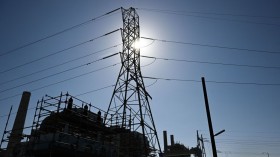According to analyzed historical data gathered from Centers of Disease Control and Prevention (CDC), you would be so lucky to reach an old age if you lived in 1901. There are so many fascinating and odd reasons why people die during the dawn of 1900s. And no, it really has nothing to do with serial killers. Here are the lowdowns.
In 1901, the biggest blame of deaths goes to diarrhea and enteritis, which is quite a surprise because in modern times, it can actually be treated. It actually claimed lives of 58,905. It was soon followed by tubercolosis of lungs that took 55,370 lives. Pneumonia and heart diseases rounded up the top four cause of deaths. General life expectancy in the U.S. during this year was 47 years old for men while 50 years old for women.
Zooming in to the present, how did 2014 fare? There is actually a huge change. Replacing diarrhea and enteritis is heart diseases, which has now claimed 614,348, followed by cancers with 591,669. Next in line is chronic lower respiratory illnesses with 147,101, a big increased compare in 1901. Cancer is not even on the list in 1901 while heart disease jumps to the top spot.
Accidents also happen, no matter what time you are in, but causes also vary. In 1901, top cause of accident was heat and sunstroke. Even lightning was on the last of the list.
If we tally each age group's common causes of death, you'll notice that in 1901, when you reach 80 years of age, you usually die of old age. Nowadays though, you'll be very lucky not to die of heart diseases by the time you are 65 years and above. However, with the small children, we have already conquered diptheria and diarrhea in recent years.
We can never really tell how we'll actually meet our death -- can it be by disease, accident or an old age? Only time can tell. In the meantime, try this Death Calculator to see how you would've died if you lived in 1901.
© 2024 NatureWorldNews.com All rights reserved. Do not reproduce without permission.
![US Thunderstorm Forecast: Southeast at Risk of Strong Winds and Hail This Weekend [NWS]](https://1471793142.rsc.cdn77.org/data/thumbs/full/70225/280/157/50/40/us-thunderstorm-forecast-southeast-at-risk-of-strong-winds-and-hail-this-weekend-nws.jpg)

![Extreme Heat Wave in Africa’s Sahel Region That Killed 100 People Linked to Climate Change [Study]](https://1471793142.rsc.cdn77.org/data/thumbs/full/70226/280/157/50/40/extreme-heat-wave-in-africa-s-sahel-region-that-killed-100-people-linked-to-climate-change-study.jpg)


